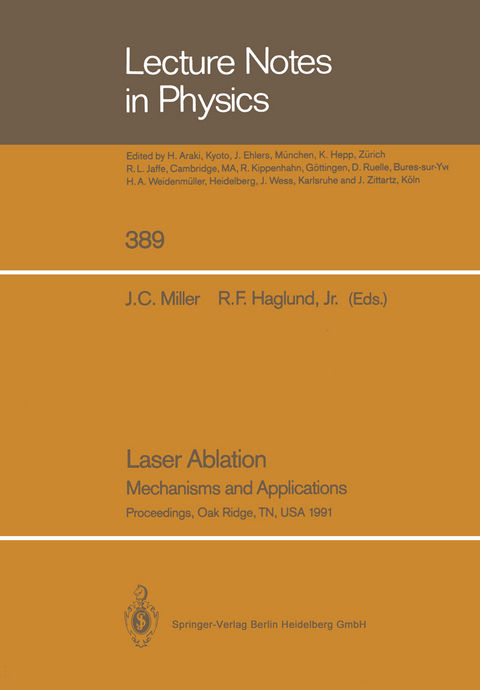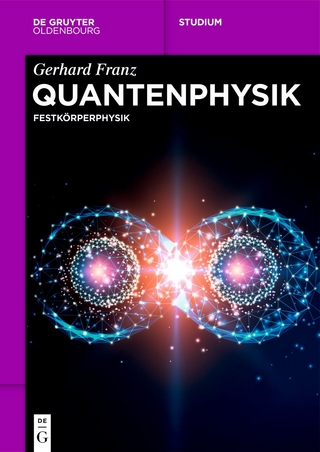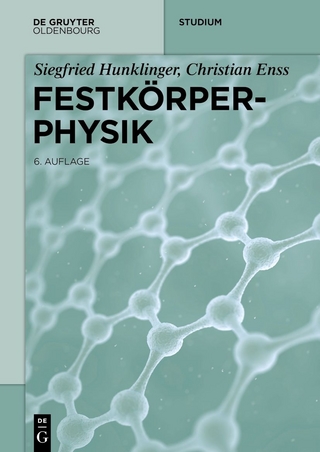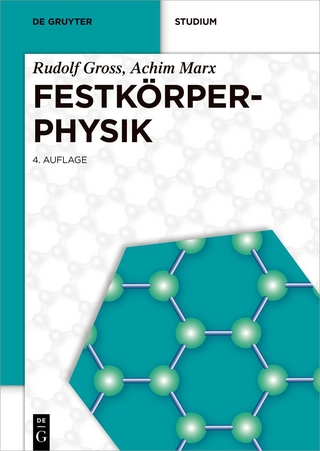
Laser Ablation
Springer-Verlag New York Inc.
978-1-4757-6982-1 (ISBN)
Lasers can readily remove very thin layers from small areas
of a material and can thus be used both to control the
structure of the surface and to determine its composition.
Laser ablation thus has a wide variety of applications -
from re-shaping the cornea of the eye to correct vision and
micro-machining electronic devices, to detection of minute
contaminants on catalysts. This book is the proceedings of
one ofthe first workshops held on this topic.
Diagnostic studies of YBa2Cu3O7?? laser ablation.- Pulsed laser deposition of high temperature superconducting thin films and hetero-structure.- In-Situ monitoring of laser ablation of superconductors.- Spectroscopic and ion probe characterization of laser produced plasmas used for thin film growth.- Synthesis of SiO2 thin films by reactive excimer laser ablation.- Characteristics of laser—material interactions monitored by inductively coupled plasma—atomic emission spectroscopy.- Trace surface analysis using ion and photon desorption with resonance ionization detection.- Pulse rate dependence of laser desorption and ionization of molecules on thin metal films: Mathematics of laser heating and pulse rate dependence.- Photodesorption of metal atoms by collective electron excitation.- Desorption of Al, Au, and Ag using surface plasmon excitation.- Threshold fluence UV laser excitation of W(100) and O2,H2,F/W(100): Photoejected ion KE distributions.- Excimer laser ablation of CdTe.- IR-laser ablation in medicine: Mechanisms and applications.- Pulsed laser ablation of biological tissue: Review of the mechanisms.- Etching polymer films with continuous wave ultraviolet lasers — The photokinetic effect.- Mechanistic insight in the laser-pulse sputtering of polymers by combined photographiy and gas-dynamic analysis.- Laser desorption and multiphoton ionization of some smaller biomolecules: Recent results and prospects.- Matrix-assisted laser desorption and ionization of biomolecules.- Laser ablation of intact massive biomolecules.- Applications of matrix-assisted laser desorption fourier transform mass spectrometry for biomolecules.- Comparison of atomization processes: Trace element analysis using Ris of laserirradiated and ion-bombarded biological and metalsurfaces.- Laser desorption of peptide molecules and ions using 193 nm radiation.- Ablation of material by front surface spallation.- Laser ablation and optical surface damage.- Laser induced photodissociation, desorption and surface reaction dynamics.- Mechanisms of laser ablation of monolayers as determined by laser-induced fluorescence measurements.- Laser-induced particle emission from surfaces of non-metallic solids: A search for primary processes of laser ablation.- Charged particle emission by laser irradiated surfaces.- Laser ejection of Ag+ ions from a roughened silver surface: Role of the surface plasmon.- A surface plasmon model for laser ablation of Ag+ Ions from a roughened Ag surface.- UV laser ablation from ionic solids.- Physics of pulsed laser ablation at 248 nm: Plasma energetics and Lorentz interactions.- Excimer laser ablation of ferrite ceramics.- Charge emission from silicon and germanium surfaces irradiated with KRF excimer laser pulses.- Pulsed laser deposition of tribological materials.- Ion-molecule reactions of carbon cluster anions.- Doubly charged negative ions of bucky ball — C60 2-.- Evaporation as a diagnostic test for hydrodynamic cooling of laser-ablated clusters.- Desorption of large organic molecules by laser-induced plasmon excitation.- Simultaneous bombardment of wide bandgap materials with UV excimer irradiation and keV electrons.- Superconducting transport properties and surface microstructure for YBa2Cu3O7-?-based superlattices grown by pulsed laser deposition.- Monitoring Laser Heating of Materials with photothermal Deflection Techniques.- Studies of laser ablation of graphite: Cn +/? Ion Kinetic energy distributions.- Infrared laser induced ablation and melting in model polymer crystals.- Chemical characterization ofmicroparticles by laser ablation in an ion trap mass spectrometer.- Photophysical processes in uv laser photodecomposition of Bi2Sr2Ca1CU2O8 and YBa2Cu3Ox+6.- Influence of liquefaction on laser ablation: drilling depth and target recoil.
| Reihe/Serie | Lecture Notes in Physics ; 389 |
|---|---|
| Zusatzinfo | IX, 362 p. |
| Verlagsort | New York, NY |
| Sprache | englisch |
| Maße | 170 x 244 mm |
| Themenwelt | Naturwissenschaften ► Physik / Astronomie ► Festkörperphysik |
| Naturwissenschaften ► Physik / Astronomie ► Optik | |
| Naturwissenschaften ► Physik / Astronomie ► Quantenphysik | |
| Naturwissenschaften ► Physik / Astronomie ► Thermodynamik | |
| Technik ► Elektrotechnik / Energietechnik | |
| Schlagworte | Electronic Device • Elektronik • Festkörperphysik • Film • Laser • Materials Science • Solid-state |
| ISBN-10 | 1-4757-6982-2 / 1475769822 |
| ISBN-13 | 978-1-4757-6982-1 / 9781475769821 |
| Zustand | Neuware |
| Haben Sie eine Frage zum Produkt? |
aus dem Bereich


